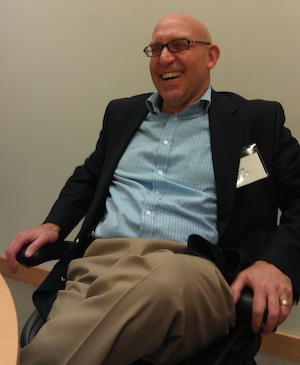Welcome to Part 2 of the Schulman-saga (see Part 1) where the Don talks to us about whether shared services are really dying, the changing role of advisors, and where he sees the BPO industry moving in the future… and what he means by “verticalizing the horizontal”. Isn’t that trying to stand up while you’re lying down? So without further ado, let’s have The Don himself elaborate further…
Phil Fersht: Don, you said to me a year ago that shared services is certainly not dead. Can you elaborate on that?
Don Schulman: Yes, I think you and I agree on this. As you know, back in the mid ‘90s I was one of the leaders in the world of shared services and drove that industry. And I was kind of sad when outsourcing was first created because I thought, “Oh my gosh, this is ending.” But I quickly concluded when I took over this business that, in fact, it’s not ending at all. I believe our clients need to maintain the governance, the management system of classic shared services within their organization. As outsourcers, we become an extension of that. It’s almost like a buy/lease option to the client. Do I own it, or do I lease it? And why would I do one versus the other? Working with an outsourcer gives clients the advantages that come from greater scale and investments in technology that are beyond their own limited capabilities. But it’s much more than that. For companies that actually want innovation, what’s the change that needs to happen, where’s the next big place we’re going to go, what’s the next big technology change, what’s the next big investment I need to make as a company to drive processes? They need to have a transformation partner at their side that is actually on the ground doing the work. That’s how this partnership works.
Phil: How do you view the changing role of advisors and consultants in this space? Do you think that they’re helping drive more sensible deals, or do you think a lot of them are still trying to do things the same way as three or four years ago?
Don: There is definitely aneed for intermediaries in this space, but with the transformation agenda clients have for their providers, the advisor’s role is changing quite dramatically. They still need to issue the RFP and size and rationalize the data to decide which provider is the best fit, but advisors today need to do much more in educating clients on how much work is involved, what this transformation agenda needs to be, and how to select the right partner. And the more consultative the third-party advisors become, both fact-driven and advice-driven, the better off they’ll be in the marketplace. I do see a significant role for them. And I think the fact that there’s this convergence going on in the last few years between the providers’ consulting side, the third-party advisors and working with guys like you that reflects this very well.
Phil: In terms of where the demand is changing, what do you think will be the newer areas of process sourcing we’ll be talking about in a couple of years? Is it looking at untouched complex areas such as marketing processes, is it just continuing to look at F&A and Procurement, or will we get more into verticals? Where do you see this heading?

Donniel "Don" Schulman is GM for F&A and Supply Chain Global Process Services at IBM
Don: I believe verticalizing the horizontal will be the next thing. For example, the mortgage processing industry has a significant influx of issues. But its very distinctive processes rely on the core processes of account reconciliation, collections and customer care, and so we bind them together with unique requirements to serve that market. We believe this verticalization of the horizontals is quickly accelerating and is the key to the future. And we are aggressively pursuing it.
Phil: Do you think we’ll see an increased number of providers coming into these verticals, or do you think we’ll see a roll-up where the big providers slowly absorb niche players?
Don: I think we’re talking about two big pillars here. One is the verticalization of the business and the fact that you need to have a consultative partnership/transformational model to be able to deliver to your clients. And the combination of both will actually stretch the industry quite significantly. I believe that a lot of the low cost bit players will struggle as the industry matures, and that there will be a rationalization and an industry shake-out to a few big players that can really provide both the technology requirements to do the verticalization of the horizontals and the partnering/consultative/transformation to pull it together.
Phil: And finally, Don, If you look back on your own career, would you do anything differently?
Don: As I said, I am very fortunate to have participated in the creation and early stages of two industries, and I’m passionate about what I do. I’ve had the opportunity to learn what partnerships are about and what being an entrepreneur is about. And I think that the resources I’ve been able to leverage as all of this has come together are completely unique and have provided me with a phenomenal opportunity.
Phil: So I guess that’s a no then! Thanks so much for taking a little time to talk with our readers, Don.
Donniel “Don” Schulman (pictured above) is General Manager, Global Finance & Administration and Supply Chain Management for IBM’s Global Process Services (GPS). He is responsible for sales, solutions, delivery and profitability of IBM’s F&A, Procurement and Supply Chain Management GPS worldwide.
Posted in : Business Process Outsourcing (BPO), Captives and Shared Services Strategies, Finance and Accounting, Outsourcing Advisors, Outsourcing Heros, Procurement and Supply Chain, Sourcing Best Practises, sourcing-change






[…] Meet the Don of BPO (Part 2) […]